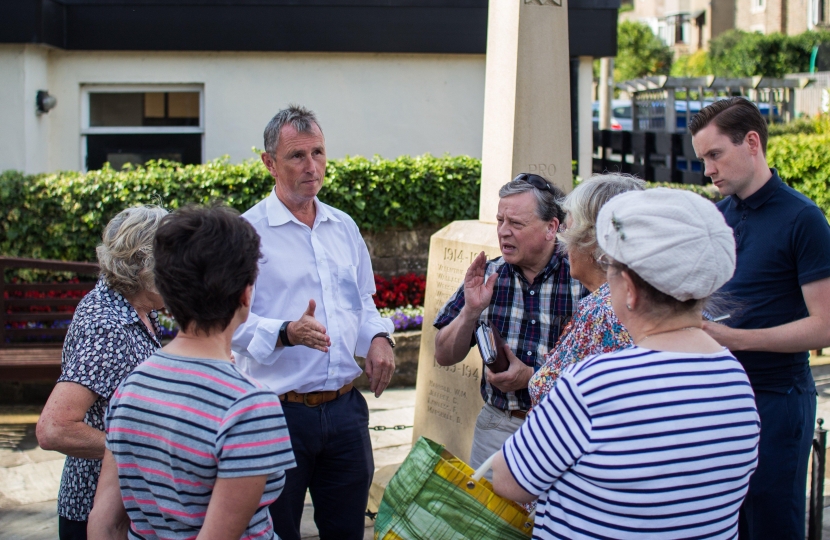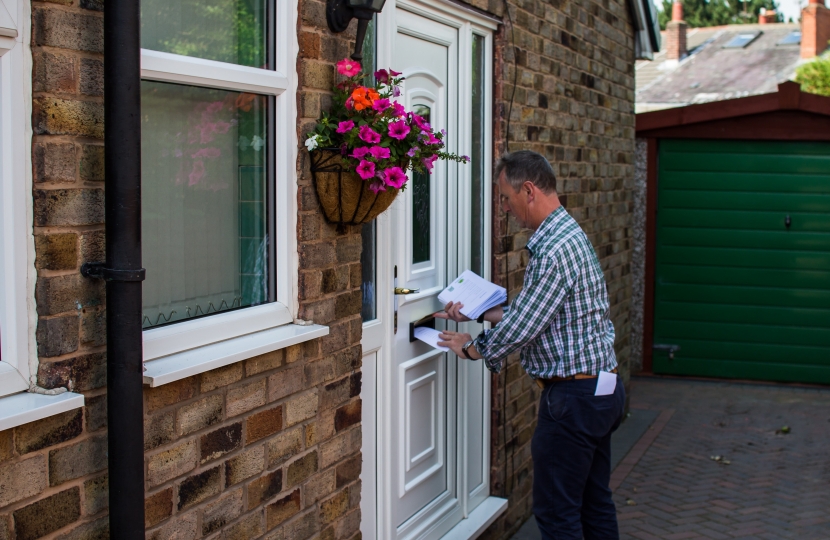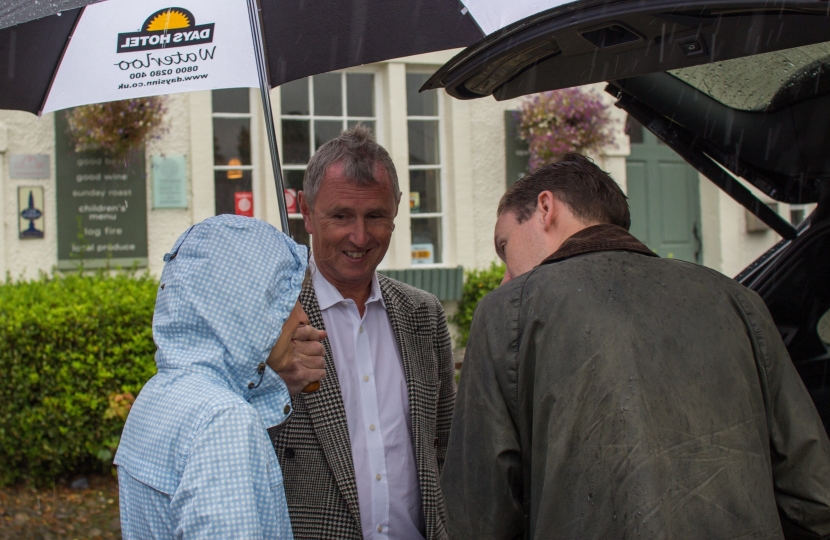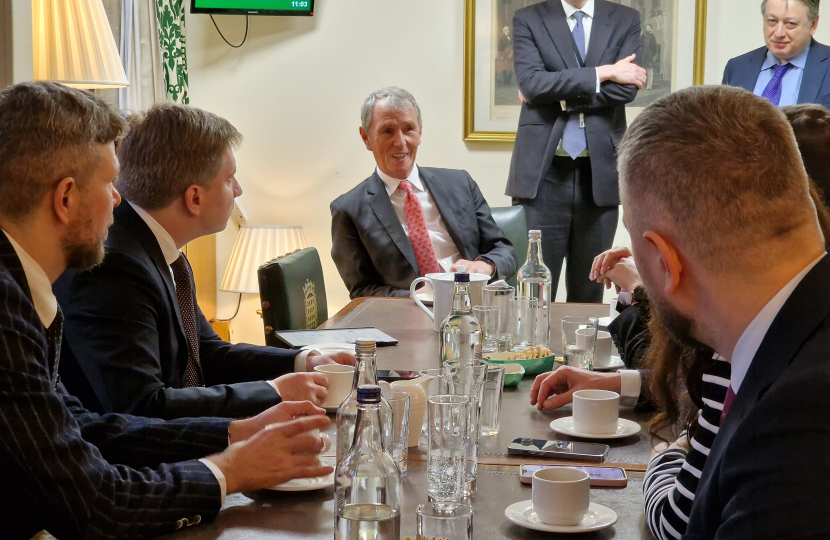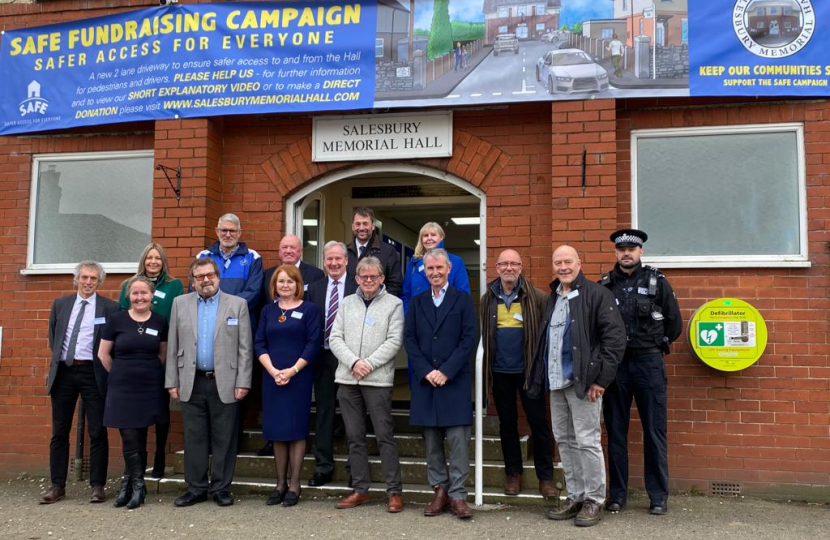Nigel's Early Years:
Nigel remained in his birthplace of Swansea during his early years, attending Dynevor School before studying at the University College of Swansea, where he gained a BA (Hons) in Politics. During this time Nigel remained involved in the running of his family's convenience store in Swansea, set up by his grandfather in the 1930s and managed by the Evans family until 2012.
At the age of 17, in 1974 Nigel joined the Conservative Party, before being elected as a councillor on West Glamorgan County Council from 1985-1991. He then went on to fight General Elections in Swansea West (1987) and Pontypridd (1989) before contesting Ribble Valley (1991).
Nigel in Parliament:
Nigel lost in 1991, however he went on to win the seat of the Ribble Valley in 1992 with a majority of 6,542, and has remained MP for the area ever since. In the election of 1997 Nigel increased his majority to 6,640 before almost doubling it to 11,238 in 2001. Prior to the 2010 General Election there was a significant boundary change to the Ribble Valley constituency, yet Nigel again increased his majority to 14,769.
The 2015 General Election saw Nigel gain 25,404 votes, followed by 31,919 in the 2017 snap election.
Most recently, in the 2019 General Election, Nigel saw his majority increase to 18,439 - his largest ever. His vote share was the largest in the Ribble Valley's history.
Nigel in Government:
During the Conservative's time in Government Nigel was appointed as Parliamentary Private Secretary (PPS) to the Rt Hon David Hunt MP while he was Employment Secretary and Chancellor of the Duchy of Lancaster between 1993-1995. He then became PPS to Tony Baldry MP, the Ministry of State for Agriculture, from 1995-1996 before working as PPS to the Rt Hon William Hague MP, Secretary of State for Wales, in 1997.
Nigel in Opposition:
In June 1997, after the election and the Conservative leadership contest (in which he supported William Hague) Nigel was appointed front bench spokesman for Welsh Affairs and joined the Constitutional Affairs team. In May 1999, William Hague appointed Nigel Evans as Vice-Chairman of the Conservative Party, and alongside leading the Party’s Information Technology for the Future group. In November 2000, Nigel was charged with leading the Conservative Party’s General Election campaign in Wales.
In September 2001 Iain Duncan-Smith appointed Nigel Shadow Secretary of State for Wales, and in October 2003, Nigel was appointed to the Welsh Affairs Select Committee. In November 2004, he was appointed Vice-Chairman of the Conservative Party, with specific responsibility for overseeing Conservatives Abroad and mobilising the Conservative vote overseas.
In December 2005, Nigel returned to the backbenches to concentrate on his work in Parliament. He joined the Council of Europe and the Western European Union as an appointee of the Prime Minister. Nigel served for three years on the Culture, Media and Sport Select Committee until July 2009 and then on the International Development Select Committee until June 2010.
Nigel is a former Chairman of the sub committee on agriculture of the Council of Europe and former Vice Chairman of the Technology and Aerospace Committee of the Western European Union. He is a former Chair of the All Party Parliamentary Groups on Egypt and Identity Fraud, and a former Chairman of Conservative Friends of India.
Nigel as Deputy Speaker:
On June 8th 2010 Nigel was elected as First Deputy Chairman of Ways and Means, and a Deputy Speaker of the House of Commons. This was the first time elections had been held for the roles and Nigel topped the poll. He served as First Deputy Chairman of Ways and Means until September 2013, when he then returned to the back benches.
In January 2020, Nigel was again elected as one of three Deputy Speakers and this time as Second Deputy Chairman of Ways and Means.

